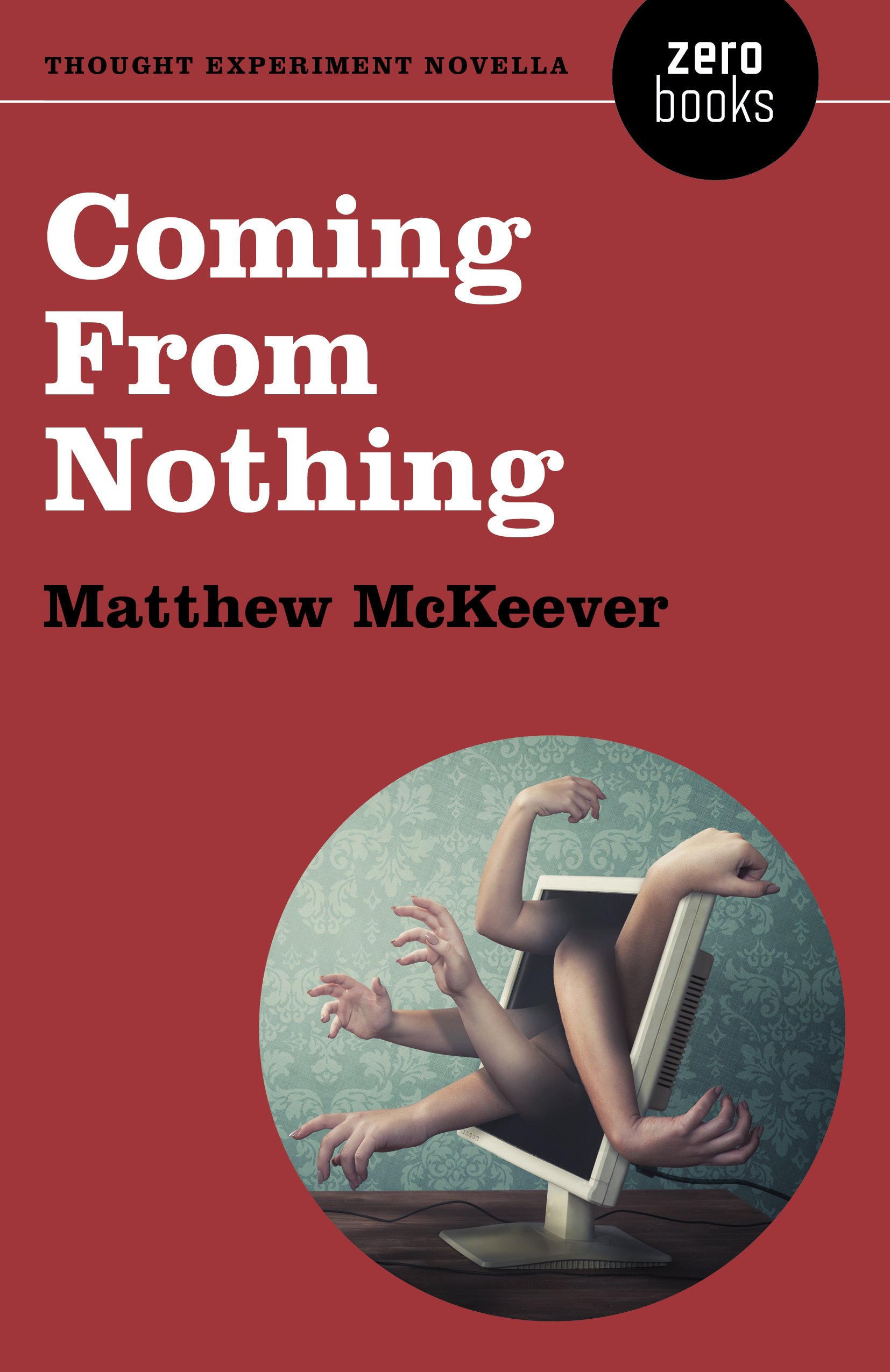Coming From Nothing

Full Title: Coming From Nothing: A Thought Experiment Novella
Author / Editor: Matthew McKeever
Publisher: Zero Books, 2018
Review © Metapsychology Vol. 25, No. 21
Reviewer: John D. Mullen
Matthew McKeever’s Coming from Nothing is the first fiction contribution to Zero Book’s ambitious and interesting series, “Culture, Society & Politics.” The series is based upon the idea that the present state of discourse about crucial matters is seriously flawed, unthinking and “blandly consensual.” The series seeks to publish works that are, “intellectual without being academic, popular without being populist.” Other titles include, Meat Market: Female Flesh Under Capitalism, Malign Velocities: Acceleration and Capitalism and Why Are We the Good Guys: Reclaiming Your Mind from the Delusions of Propaganda, as examples.
McKeever’s novel wraps a complicated love story around a portrait of the lives and struggles of young, college-aged, highly educated people. The locations are Louisiana in the States and Dublin in Ireland.
Carrie, from Louisiana State, meets Jules from Dublin in a class in Dublin. She has bounced around classes in literature, ancient Greece and philosophy. He has studied computer science but was auditing a class in Feminist Theory in search of women, which was where they met. In their first conversation, Jules is having trouble understanding Carrie. “It’s all bollocks” he says. Carrie suggests that his confusion rests upon the fact that he is “an essentialist” on matters of gender.
Reviewer’s note on gender essentialist: The difference between Brooklyn and Queens, as boroughs of New York City, was created by humans who decided, for their own purposes, to draw lines on a map. Some might say it’s an artificial distinction. On the other hand, many would (still) say that the distinction between a male and a female is not like that. It’s a distinction based, not upon a practical decision, but upon discovering what nature is like. Rather than artificial, it is a natural distinction. The latter idea is “gender essentialism” (also called “gender realism”) and has lately become controversial, even political, with the rising recognition of transgender people. The idea that gender (what sex a person is) is a social construction, based upon human choices, would be called “gender nominalism,” and is promoted in many circles today.
The question of personal identity, how one decides who one person is, runs through the novel, in and out of parties, disasters, drugs, money problems, vague refers to the philosopher John Searle and his Chinese room, and more. There are some scenes that are particularly well drawn and subtle, as when sex between Jules and Carrie becomes a calamity and how each responds; how things grow subtly to be different as a consequence. The novel’s dialogue is clipped and smart, though in long sequences, could use more tags, “he said” or “Carrie said”, etc. The ending is a nice twist. I recommend this novel as well as a close look at the series.
John Mullen is a philosopher and writer living in a partially re-habbed timber frame house in Dresden, Maine. He is the author of the widely read, Kierkegaard’s Philosophy: Self-Deception and Cowardice in the Present Age, as well as a book on logic and (with Byron M. Roth) a book on decision making. His novel, The Woman Who Hated Philosophers was published by Swallow Tail Press in 2017. His stories are spread around the web, most recently “The Passing of Days” in Every Day Fiction, 2020, and “In Father’s Eyes” in Fiction on the Web, 2017.
Categories: Fiction
Keywords: fiction, philosophy
